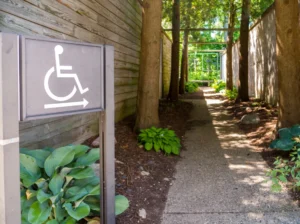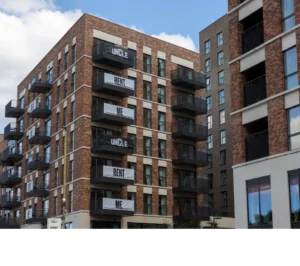Telltale Signs Water Heater, Furnace Will Soon Die
by Kevin and Bill Burnett, Inman News
 Q: After reading your column on noisy water heaters I was left with a question that has been worrying me since I was widowed and no longer able to depend on my husband to know such things. The issue that sparked my attention was your estimated life span of water heaters as determined by their warranties.
Q: After reading your column on noisy water heaters I was left with a question that has been worrying me since I was widowed and no longer able to depend on my husband to know such things. The issue that sparked my attention was your estimated life span of water heaters as determined by their warranties.
I know my furnace was new, and I think the water heater was too, when I purchased this house in 1973. I am haunted by the idea of one of them suddenly breaking down, but also would hate to replace an appliance that I have found to be so reliable. Are there estimated life spans for such things? Or warning signs of demise? If so, what are they? Somehow furnaces and water heaters are much more mysterious to me than my kitchen appliances.
A: Let’s do the math. Installed in 1973, your furnace and water heater are 35 years old. The water heater rivals Methuselah for longevity. The furnace is a ripe old age. Even though they are senior citizens, we don’t recommend rushing out and replacing these venerable stalwarts without doing a little investigation — “If it ain’t broke, don’t fix it.”
We recommend that you do two things. First, give Pacific Gas & Electric a call and ask them to send a service person out to inspect the water heater and the furnace. This will be a safety inspection. The service person will make sure these appliances are operating safely. If not, they will be “red tagged,” and you’ll either get them fixed or replaced.
Second, if the furnace is functional, have it serviced. This will extend its life.
Realize, though, that your water heater, especially, is on its last legs. The good news is that you can run it till it dies, then replace it in relatively short order. The estimated life of a gas water heater is about 15 years. That you’ve gotten two times that is incredible.
Water heaters usually give up the ghost by springing a leak at the bottom of the tank. Hopefully, the appliance is in a garage where the leak can be contained. If not, consider replacing it before it leaks. As part of the replacement process have a drain pan installed, if there isn’t one already. A drain pan is a shallow metal pan that the water heater sits in with a drain hole with a pipe in the bottom directed to the outside of the house.
The two biggest things that go wrong with furnaces are a cracked heat exchanger and — if it’s a forced-air unit — a blower motor that quits. A heat exchanger takes the heat produced by burning natural gas and transfers it to the duct work for distribution throughout the house. What usually makes heat exchangers inoperative is a hole or a crack that allows the hot water to escape, or exhaust from the combustion fuel to escape into the interior air of the home. This is carbon monoxide and in sufficient quantities can be deadly.
Constant heating and cooling from years of use will eventually cause a heat exchanger to crack, but some last longer than others. Under some conditions, many survive well beyond their predicted life spans. Yours appears to be one of those.
Blower motors receive return air from the interior of the home, force it through the heater and blow the warm air into the living area. Blower motors can collect dust and dirt, making the motor work harder. Failure to regularly clean the dirt can cause the motor to burn out prematurely.
It’s important to change the furnace filters and vacuum the blower area regularly to prolong the life of blower motor. These are two of the things regular servicing will accomplish. An annual internal inspection by a licensed HVAC will include cleaning and testing for exhaust leaks. It should cost in the neighborhood of $100 and is money well spent.What’s your opinion? Leave your comments below or send a letter to the editor. To contact the writer, click the byline at the top of the story.
Copyright 2008 Bill and Kevin Burnett
See the Burnetts’ feature, Dual Flush Toilet Sure to Wow.
Check out our Green Pages for information on money saving tips that help the environment. Once there, click on the Green Forum.
American Apartment Owners Association offers discounts on products and services related to your commercial housing investment, including real estate forms, tenant debt collection, tenant background checks, insurance and financing. Find out more at www.joinaaoa.org.
To subscribe to our blog, click here.













 Accessibility
Accessibility